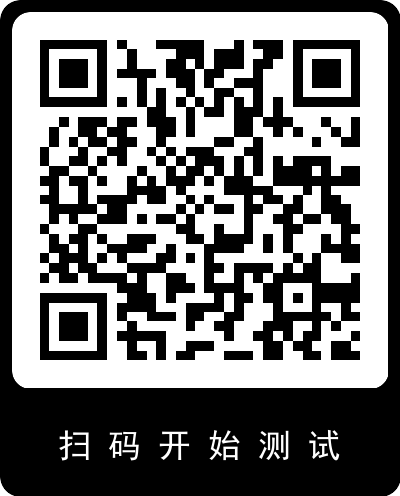If you are unsure of your constitution type, please take a test first.

What is Yin deficiency? Yin represents substance; deficiency means insufficiency. Yin deficiency indicates a lack of substance, such as essence, blood, and body fluids. In simple terms, it means the body is lacking water.
1
Seven Major Symptoms of Yin Deficiency
1. Individuals with Yin deficiency tend to be thin, with dark and dry skin..
Yin represents substance; thus, those with Yin deficiency have insufficient substance, leading to a thin physique. Dark skin appears aged, indicating a lack of moisture.
2. Individuals with Yin deficiency easily experience dry mouth and throat, craving water, and often desire cold drinks.
Yin deficiency leads to a lack of water in the body, causing thirst. However, the water consumed does not effectively transform into body fluids, leaving them still thirsty. Yin deficiency generates internal heat, making them particularly crave cold water to extinguish this heat.
3. Dry stools and constipation are common.
This is due to insufficient body fluids in the large intestine, leading to dryness and constipation.
4. Heat in the palms and soles, and a feeling of heat in the five hearts.
This occurs because of insufficient body fluids; Yin deficiency leads to Yang excess, which generates internal heat that manifests in the extremities and causes a feeling of heat in the five hearts.
5. Prone to insomnia, especially in spring and summer, often accompanied by irritability.
For sleep, Yang must enter Yin. If Yin is insufficient, Yang cannot enter Yin, making those with Yin deficiency prone to insomnia.
6. Prone to dry cough, especially aggravated between 1 AM and 5 AM.
The lungs prefer moisture and dislike dryness. If Lung Yin is deficient, the lungs do not receive adequate moisture, leading to coughing. Coughing between 1 AM and 3 AM indicates Liver Yin deficiency, while coughing between 3 AM and 5 AM indicates Lung Yin deficiency.
7. The tongue appears red and small, with little coating.
Insufficient Yin in the body results in a small tongue; if there is heat due to Yin deficiency, the tongue appears red. Deficiency heat dries up the body fluids in the stomach and intestines, leading to little or no tongue coating.
2
The essence of Yin deficiency is a lack of water in the body. The approach to regulation is simple: add water to the body.
Method 1: General Dietary Therapy: Zhu Yu Er Bao Congee.
60g Huai Shan Yao (Chinese Yam), 60g Sheng Yi Yi Ren (Job’s Tears), 24g Shi Shuang Bing (Persimmon Frost Cake). First, grind the Job’s Tears and Chinese Yam into powder, then cook with water to make congee. When cooked, add the crushed Persimmon Frost Cake and stir. This can be consumed at any time daily.
This formula is from Mr. Zhang Xichun, who stated it treats spleen Yin deficiency due to poor diet and cough from Liver and Lung Yin deficiency, as well as all symptoms of Yin deficiency. It is safe and can be used for any type of Yin deficiency without differentiating between organ-specific Yin deficiency.
Method 2: Three Common Dietary Therapies
2.1: Honey and Tremella Steamed Lily Bulbs: 120g Bai He (Lily Bulb), 30g Honey, 30g Yin Er (Tremella).
2.2: Lotus Seed and Lily Bulb Soup with Lean Meat: 30g Lian Zi (Lotus Seed), 50g Bai He (Lily Bulb), 100g Lean Pork.
2.3: Lily Bulb, Lotus Seed, and Tremella Soup: 20g Lian Zi (Lotus Seed), 10g Yin Er (Tremella), 30g Bai He (Lily Bulb), appropriate amount of rock sugar.
Individuals with Yin deficiency should consume more soups and broths, which nourish Yin. Common Yin-nourishing foods include:
Bai He (Lily Bulb), Yin Er (Tremella), Hei Zhi Ma (Black Sesame), Sang Shen (Mulberry), Jia Yu (Soft-shelled Turtle), Hei Dou (Black Bean), Hai Shen (Sea Cucumber), Wu Mei Tang (Black Plum Soup), Honey, etc.
Avoid hot foods and Qi-tonifying foods, such as: Gui Yuan (Longan), La Jiao (Chili), Huo Xiang (Fennel), fried foods, hot pot, Ma La Tang (Spicy Hot Pot), Ren Shen (Ginseng), Huang Qi (Astragalus), etc.
Method 3: Regulation for Lung Yin Deficiency
Individuals with Lung Yin deficiency are prone to dry cough and have a red tongue tip. A recommended tea formula is:
15g Mai Dong (Ophiopogon), 1 piece Luo Han Guo (Monk Fruit), 3g Wu Wei Zi (Schisandra). Brew with boiling water as a tea.
If this method seems complicated, you can drink Sheng Mai Yin (Western Ginseng version), which is a formula that tonifies both Qi and Yin.
Method 4: Regulation for Liver Yin Deficiency
Symptoms of Liver Yin deficiency include: insomnia, night sweats, thirst at night, dry and blurry eyes, irritability, etc. It is necessary to nourish Liver and Kidney Yin while clearing Liver fire.
If the Liver Yin deficiency is mild, a recommended tea formula is:8g Bai Ju Hua (White Chrysanthemum), 20g Gou Qi Zi (Goji Berries), 5g Fo Shou Hua (Buddha’s Hand Flower).
This formula is based on “Goji and Chrysanthemum Tea,” with the addition of Buddha’s Hand Flower to soothe the liver and regulate Qi. For mild symptoms, consistently brewing and drinking this tea will yield good results.
Method 5: Regulation for Severe Liver Yin Deficiency
If the Liver Yin deficiency has persisted for a long time with severe symptoms, a recommended soup formula is:Yi Guan Jian (One-String Decoction). This is a good formula for nourishing Yin and soothing the liver, suitable for menopausal syndrome.
15g Bei Sha Shen (North American Ginseng), 15g Mai Dong (Ophiopogon), 15g Dang Gui (Angelica), 30g Sheng Di Huang (Rehmannia), 10g Gou Qi Zi (Goji Berries), 3g Chuan Lian Zi (Melia Fruit).
3
6. Regulation for Kidney Yin Deficiency
Symptoms of Kidney Yin deficiency are similar to those of Liver Yin deficiency, including night sweats, insomnia, heat in the five hearts, and additionally:lower back and knee soreness. The regulation methods will involve the use of Di Huang (Rehmannia) type patent medicines.
6.1 For individuals with basic symptoms of Kidney Yin deficiency, taking Liu Wei Di Huang Wan (Six-Ingredient Rehmannia Pill) is sufficient.
6.2 For those with strong deficiency fire symptoms, such as bone steaming heat and irritability, use Zhi Bai Di Huang Wan (Anemarrhena and Rehmannia Pill).
6.3 If Kidney Yin deficiency leads to inability to hold Qi, resulting in nighttime cough and wheezing, use Du Qi Wan (Coughing Qi Pill).
6.4 For significant night sweats, use Mai Wei Di Huang Wan (Ophiopogon and Rehmannia Pill).
6.5 For dry eyes and blurred vision, use Qi Ju Di Huang Wan (Goji and Chrysanthemia Pill).
7. Regulation for Heart Yin Deficiency
Individuals with Heart Yin deficiency will have a strong heart fire, presenting symptoms such as: mouth sores, irritability, insomnia, short and red urination, and a very red tongue tip.
For those with mild symptoms of Heart Yin deficiency, a recommended herbal tea formula is:5g Zhi Zi (Gardenia), 2g Dan Zhu Ye (Bamboo Leaf), brewed in water as tea.
For those with more severe symptoms, a recommended soup formula is: Huang Lian A Jiao Tang (Coptis and Donkey-hide Gel Soup).
12g Huang Lian (Coptis), 6g Huang Qin (Scutellaria), 6g Bai Shao (White Peony), 9g A Jiao (Donkey-hide Gel), 2 egg yolks.
8. Regulation for Stomach Yin Deficiency
Individuals with Stomach Yin deficiency will most notably experience a feeling of fullness, easy hunger, and dry mouth and throat.
The simplest regulation method for Stomach Yin deficiency is:to drink water boiled with Shi Hu (Dendrobium).
9. Regulation for Large Intestine Yin Deficiency and Fluid Deficiency
Individuals with Large Intestine Yin deficiency and fluid deficiency will experience dry stools and constipation. This type of condition should be taken seriously, as the large intestine is the body’s largest detoxification channel. If the outlet is blocked, toxins will accumulate, leading to various diseases.
For mild dry stools, a recommended small formula is:
500g roasted black sesame, 500g pine nuts,ground into powder, then mixed with an appropriate amount of honey and stored in a sealed jar. Take 30-50g daily, brewed with boiling water.
10. For severe dry stools, it is recommended to use this medicinal paste:
[Chinese Herbal Decoction]
150g Sheng Di Huang (Rehmannia), 150g Xuan Shen (Scrophularia), 150g Mai Dong (Ophiopogon), 200g Dang Gui (Angelica), 200g Sheng Bai Shao (White Peony), 150g Zhi Shou Wu (Processed Fo-Ti), 100g Rou Cong Rong (Cistanches), 200g Sheng Bai Zhu (Atractylodes), 100g Fu Ling (Poria), 100g Xing Ren (Apricot Kernel), 60g Zhi Da Huang (Processed Rhubarb), 150g Zhi Shi (Bitter Orange), 120g Huo Ma Ren (Hemp Seed), 100g Hou Po (Magnolia Bark), 100g Zi Yuan (Aster).
[Gel-type Medicines]
50g Gui Jia Jiao (Tortoise Shell Gel), 150g A Jiao (Donkey-hide Gel)
[Flavoring Medicines]
300g Honey
4
These are the 10 methods for regulating Yin deficiency. Additionally, one must consider the question: how does Yin deficiency arise?
The essence of Yin deficiency is a lack of water. Why does the body lack water? It could be due to insufficient intake or excessive loss.
For example: consuming spicy foods, staying up late, chronic insomnia, excessive sweating, etc., are all possible causes. To truly adjust Yin deficiency, one must address the root causes by correcting these unhealthy lifestyle habits.
Yin deficiency is not very common among modern individuals, affecting about 10-12%, most commonly seen in those around menopause and children. With these 10 methods and the right mindset, one should be well-equipped to cope.
Recommended Learning
1. Introduction to Basic TCM

2. Nine Major Constitution Regulation Plans

3. 100 Common Chinese Herbs Explained

4. 100 Classic Common Formulas

5. 365 Common Disease Regulations


As a moderate person, I am neither knowledgeable in astronomy nor geography. This account aims to promote TCM culture, not as a platform for medical consultation. The formulas shared here are for learning and exchange purposes; please do not blindly try medications.
The most down-to-earth TCM public account

↑↑↑Scan to follow

